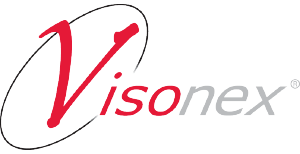Patient Rights Regarding Access to Medical Records
The Health Insurance Portability and Accountability Act of 1996 (HIPAA) governs an individual’s right to access their own medical records. HIPAA regulations recognize the importance of providing individuals with the ability to access their own health information. Providing individuals access to their medical information empowers them to play a proactive role and track their own health. With access to their health information, individuals are better able to track progress in wellness or disease management programs, as well as monitor chronic conditions such as chronic kidney disease (CKD). Easy access to medical records empowers people to adhere to treatment plans, correct any potential errors, and even contribute toward research.
Patient Rights Regarding Access to Medical Records
The HIPPA privacy rule provides individuals with a legal, enforceable right to see and obtain copies of their medical records. This includes electronic medical records from health plans as well as health care providers.
Importance of medical records for dialysis patients
During the COVID-19 pandemic, it became imperative that dialysis clinics offer alternatives to in-clinic dialysis treatment. In fact, many patients had to switch to health care facilities that accommodated at-home treatment. During medical emergencies, it is vital that patients are able to access their healthcare information. To assist with the sharing of patient information, most EMRs have begun offering patient portals. This makes it easier for patients to log in, review, print, and share information regarding their health. Easy access to medical records helps medical facilities provide better continuity of care. Another benefit of easily accessible healthcare information is the reduced costs of healthcare.
Visonex Electronic Medical Records
Visonex understands the critical importance of allowing patients to access their own healthcare information. Therefore, the Visonex Patient Portal allows home dialysis patients to view and print their medical records and send treatment information to the dialysis facility.
Patient portal features:
- Medication administration
- Treatment information
- Access to dialysis machine data for both NxStage and Tablo
- Coming soon – Ability for two-way communication between patients and clinical staff
For in-center dialysis patients, the Patient Portal is also great for Emergency Disaster Preparedness and access to medical records.
The Visonex Patient Portal is available via phone, tablet, or computer.
Additional Reading: Using Electronic Health Records to Identify Patients With Chronic Kidney Disease – Centers for Disease Control and Prevention (CDC)
Visonex®
Visonex is committed to the advancement of the integrated model of care. In this value-based healthcare environment, Visonex can help your organization manage chronic health conditions such as Chronic Kidney Disease (CKD). Visonex’s proprietary Analytics Data Warehouse (ADW), interoperability with multiple data sources, and chronic care electronic health records EHR platform with AI/decision support tools provide a meaningful, data-driven approach to improved patient health while driving efficiencies reducing costs. To learn more about how your current data could be used to lower risk for your patient population, reach out to [email protected]. Sign up here to receive industry updates. Maximize patient outcomes, improve regulatory compliance, streamline workflows, and incorporate multiple sources into a single landing point for chronic disease management. Now that is providing “Clarity” to a cloudy situation!
For more information on the future of kidney care, call us at 1-877-285-7944, visit our website at visonex.com or email us at [email protected]
Recent Articles
What Is Interoperability in Healthcare and Why Is It Important?
